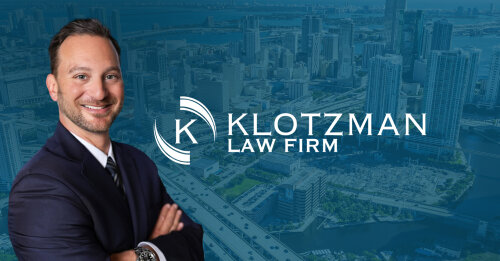Best Premises Liability Lawyers in New York City
Share your needs with us, get contacted by law firms.
Free. Takes 2 min.
List of the best lawyers in New York City, United States
1. About Premises Liability Law in New York City, United States
Premises liability in New York City covers injuries caused by dangerous conditions on someone else’s property or premises. In general, property owners and occupiers owe a duty of reasonable care to invitees, licensees, and, in some cases, the public. The level of duty depends on the relation to the property and the known hazards involved. In NYC, common premises liability cases include slip and fall on wet floors, trip hazards on sidewalks, elevator or escalator injuries, and hazardous conditions in rental buildings.
New York law blends common law duties with statutory rules. A key concept is whether the owner had actual or constructive notice of a hazard and whether the owner acted with reasonable care to fix or warn about it. Proving notice often hinges on documentation, witnesses, and records showing how long the hazard existed. Local conditions in NYC, such as busy pedestrian areas and high-rise building common spaces, shape how courts assess duty and notice.
Statutory and procedural context matters in NYC. You typically must act within statutory time limits, establish a duty of care, show the owner breached that duty, and prove the breach caused your injuries. The NYC legal environment emphasizes building safety, sidewalk maintenance, and public safety responsibilities for property owners and managers. For people living in or visiting NYC, understanding these basics helps you evaluate whether you should seek legal counsel after an incident.
“Premises liability claims in New York require proving a duty, breach, causation, and damages within the state’s time limits.”
CPLR 214 - Personal injury statute of limitations (typically 3 years)
2. Why You May Need a Lawyer
-
Slips and falls in a Manhattan grocery or department store - You suffer a knee injury after stepping on a slick puddle with insufficient warning signs. A lawyer can investigate whether the store knew or should have known about the spill and whether warning signs were properly placed, which affects liability.
-
Sidewalk or common area hazards in a NYC apartment building - A cracked curb and missing handrails caused a fall near your building entrance. An attorney can assess whether the building owner or management created or was negligent in maintaining the sidewalk or steps and whether you have a viable claim against multiple parties.
-
Hazardous elevator or escalator conditions - An elevator lurches and injures you in a residential or commercial building. A lawyer can evaluate whether maintenance logs, prior complaints, and building codes support a claim for negligent maintenance or defective equipment.
-
Negligent security at a hotel, theatre, or subway area - A room or venue fails to provide adequate security, leading to an assault. An attorney can help establish whether known criminal activity or reasonable security measures were ignored or inadequately addressed.
-
Injuries on a construction site or in a premises tied to construction work - A bystander or worker is injured by unsafe scaffolding or falling debris. In NYC, safety statutes for construction sites can be complex and may involve multiple responsible parties.
-
Condominium or rental building hazards - A tenant is hurt by a defective stairway or poor lighting in common areas. An attorney can help determine if the owner, manager, or contractor bears liability for ongoing hazards that should have been addressed.
3. Local Laws Overview
Statute of limitations for premises liability - In New York, most personal injury claims, including premises liability, must be commenced within three years of the accident, under CPLR 214. Missing the deadline typically bars recovery unless an exception applies. This timeline is critical in planning a claim and choosing when to consult counsel.
New York City Building Code and Administrative Code - The NYC Building Code, part of the Administrative Code (Title 28), sets local safety rules for building maintenance, stairways, lighting, and structural conditions on premises. The code has undergone updates since its 2014 adoption to reflect modern safety standards. Compliance by property owners and managers is often a central focus in premises liability cases in NYC. NYC Department of Buildings explains these requirements and enforcement actions.
General duty of premises owners under Labor Law - New York Labor Law § 200 requires owners and contractors to maintain the premises in a reasonably safe condition for workers and others who may be on site. While originally oriented toward workplace safety, the statute is frequently cited in premises liability cases involving construction and common areas in NYC properties. For construction related hazards, the Scaffold Law portions of the Labor Law also influence liability in high-risk environments. OSHA provides federal safety standards that intersect with local building practices.
4. Frequently Asked Questions
What is premises liability in New York City?
Premises liability covers injuries caused by dangerous conditions on someone else’s property. The owner must exercise reasonable care to keep premises safe for visitors. Legal duties vary by invitee status and by the hazard involved.
How long do I have to file a premises liability claim in NYC?
Most personal injury claims must be filed within three years of the incident under CPLR 214. Some exceptions apply in specific circumstances; consult an attorney for your facts.
What is the difference between an invitee and a licensee in NYC premises cases?
An invitee is someone invited onto the property for business purposes, giving the owner a higher duty of care. A licensee is a social visitor, with a somewhat lower duty of care expected from the owner.
How much can I recover in a NYC premises liability case?
Recovery depends on injuries, liability, and damages proven. Awards may cover medical costs, lost wages, and non-economic damages, with outcomes varying widely by case specifics.
Do I need a lawyer for a slip and fall claim?
While not mandatory, a lawyer helps collect evidence, identify liable parties, negotiate with insurers, and explain local rules and timelines. This is especially important in NYC where notice and liability standards can be complex.
How is fault proven in NYC premises liability?
Fault is shown by proving a hazard existed, the owner breached the duty of care, and the breach caused your injuries. Evidence includes photos, maintenance logs, and witness statements.
Do I need to file a lawsuit or can I settle beforehand?
Many cases settle before trial, but a lawsuit may be necessary to obtain fair compensation. A lawyer can evaluate a settlement offer for adequacy and timing.
What evidence should I collect after a premises incident in NYC?
Take photos of hazards, collect witness contact information, obtain incident reports, and preserve any broken equipment. Keep medical records and receipts related to injuries.
Can I sue the city or a state agency for sidewalk hazards?
Yes in some circumstances, especially if the city or agency failed to maintain sidewalks with notice of a hazard. Claims against government entities have special procedures and deadlines.
Do premises liability claims involve only stores and buildings?
No. Claims can involve sidewalks, parks, hotels, restaurants, elevators, construction sites, and other property types where safety is compromised.
How long does a NYC premises liability case take to resolve?
Resolution timelines vary widely. Simple cases may settle within months, while complex cases can take a year or more, depending on discovery and court schedules.
What is the typical contingency fee for a NYC premises liability attorney?
Contingency fees commonly range from one-third to 40 percent of the recovery if the case settles or goes to trial, depending on complexity and local practice. Always confirm fee terms in writing.
5. Additional Resources
The following resources provide official guidance on premises safety, injury claims, and building standards in New York:
- New York State Unified Court System - Provides information on filing personal injury actions, court rules, and forms for premises liability cases.
- New York City Department of Buildings - Enforces the NYC Building Code and investigates dangerous conditions in buildings and sites across the city.
- Occupational Safety and Health Administration (OSHA) - Federal safety standards and guidance relevant to premises safety, especially in construction and workplace contexts.
6. Next Steps
Document the incident immediately and seek medical attention if needed. Take photographs, collect witness contact information, and obtain incident reports as soon as possible.
Preserve evidence such as footwear, clothing, and any defective equipment or lighting. Keep a diary of symptoms and medical treatments for at least several months.
Consult a New York City premises liability attorney within weeks of the incident to preserve evidence and ensure deadlines are understood. Many firms offer free initial consultations.
Compile key documents for your attorney: incident reports, medical records, invoices, maintenance logs, and any communications with property owners or insurers.
Discuss fee arrangements and the expected scope of investigation. Confirm whether the fee is contingent on recovery and the percentage you would owe at settlement or trial.
Let your attorney handle communications with insurers and opposing counsel. Do not sign releases or admissions without legal advice.
Decide with your attorney whether to pursue settlement or court action after evaluating damages, liability, and case strength. Prepare for a timeline that can extend from several months to over a year.
Lawzana helps you find the best lawyers and law firms in New York City through a curated and pre-screened list of qualified legal professionals. Our platform offers rankings and detailed profiles of attorneys and law firms, allowing you to compare based on practice areas, including Premises Liability, experience, and client feedback.
Each profile includes a description of the firm's areas of practice, client reviews, team members and partners, year of establishment, spoken languages, office locations, contact information, social media presence, and any published articles or resources. Most firms on our platform speak English and are experienced in both local and international legal matters.
Get a quote from top-rated law firms in New York City, United States — quickly, securely, and without unnecessary hassle.
Disclaimer:
The information provided on this page is for general informational purposes only and does not constitute legal advice. While we strive to ensure the accuracy and relevance of the content, legal information may change over time, and interpretations of the law can vary. You should always consult with a qualified legal professional for advice specific to your situation.
We disclaim all liability for actions taken or not taken based on the content of this page. If you believe any information is incorrect or outdated, please contact us, and we will review and update it where appropriate.

















